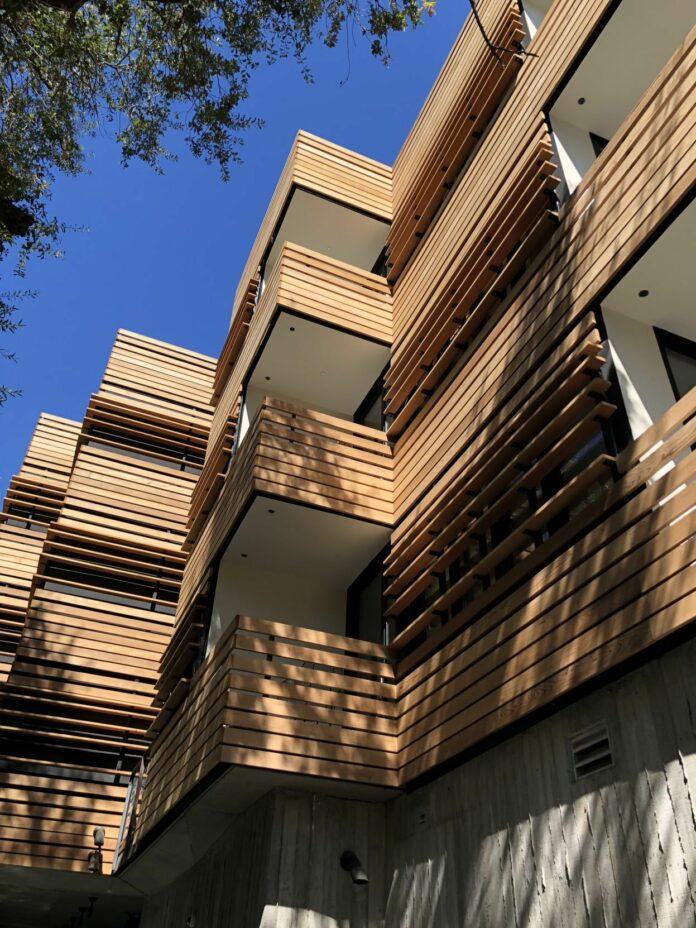Faced with mandatory water conservation measures city-wide, local hotels are having to do what they can to reduce their water usage by 40%.
While newer hotel properties already have water efficient fixtures such as low flow toilets and showers, some hotels are taking additional conservation measures such as conducting water audits and sharing water conservation messages with guests.
For “Harmon Guest House, which we were developing the concept for during the last drought, we made some extra special efforts towards conservation at that property. We built a giant cistern under the hotel which can hold 16,000 gallons of water and that’s enough to handle the landscaping without any additional water from the city for an entire summer,” said Circe Sher, co-founder of Piazza Hospitality.
Piazza Hospitality owns and operates three hotels in town, Hotel Healdsburg, h2hotel and Harmon Guest House.
“Harmon Guest House and h2hotel were designed to be conservation-oriented hotels. They are both LEED Gold certified,” Sher said.
The Leadership in Energy and Environmental Design is a green building certification program used worldwide. In order to be LEED certified buildings have to have certain efficiency measures and certain environmentally friendly features.
h2 has cisterns as well, however, they are a bit smaller.
She said h2 and Harmon have drought tolerant plants and both properties have low flow toilets, sinks and showers.
“From the get go we were conserving water there, which is nice, but is hard to improve,” Sher said. “Basically where we improve is through our cleaning practices where we ask guests to request if they want their sheets washed and we also have a standard procedure which is to let us know if you need your towels replaced. We are not going to automatically replace them.”
She said this standard practice applies to all of their hotels. At their restaurants they only serve water upon request.
Sher said at Hotel Healdsburg, which is the oldest property of the three, they are working to implement new and improved conservation measures.
“One major thing that we did do at Hotel Healdsburg is we removed our lawn in the center of the hotel and replaced it with a gravel courtyard. We also ordered low flush toilets for all our public spaces, so that includes our lobby bathroom, our pool bathroom, public restrooms and our spa,” Sher said.
She said hopefully the toilets will be delivered the first week of October.
“We’re also getting motion sensor sink fixtures so we’re working on retrofitting Hotel Healdsburg, our original property, and maintaining all of the cleaning protocols that we have,” Sher said.
She added that they’ve also made custom signs that are placed in each room to remind guests of the need to save water.
The Best Western Dry Creek Inn has also completed some efficiency retrofitting. In September, the hotel had recently completed a retrofit project to outfit guest rooms with water efficient showers and sinks, which are the hotel’s biggest water users.
The improvements are expected to save 770,000 gallons per year, assuming high occupancy, according to the city of Healdsburg.
In terms of getting the word out to other hotels about the need to save water, the Healdsburg Tourism Improvement District (HTID) conducted a survey to better understand conservation education needs and printed conservation cards and posters to distribute to local hotels.
“HTID conducted a survey to its members to better understand the education needs as far as consumption. Under the Chamber’s creative direction, tent cards and posters were printed and distributed to hotels and other businesses within the city,” said Brooke Igleheart Ross, an HTID member and the director of sales and marketing for Hotel Trio Healdsburg.
Additionally, “We engaged the services of a company who visited several hotels in Healdsburg to run water audits and install water restrictors where needed,” Igleheart Ross said.
The audit is performed in order to identify areas of potential water savings improvements and evaluate the steps required to achieve balance within the building’s water system. Following the audit, flow controllers are calibrated and manufactured for each floor or unit and are installed.
Another audit is performed post installation in order to confirm that water flows are being optimized.
Hotel Trio took the same approach and was recently featured in a Sonoma Water video about hotel water savings efforts.
“Drought is not new to us. When it comes to saving water, simple changes can make a big impact. We perform water usage audits and will install flow restrictors,” Igleheart Ross said in the video.
Additionally she said, “Guests have the option to save water and forgo cleaning services and the hotel will donate $3 per room per day on the guests’ behalf to the Healdsburg Fire Department, an incentive we established after the first in 2018. We also share information on how to save water by displaying water saving materials to help our guests and patrons stay aware of the current water scarcity.”
According to Healdsburg Utility Department data, the commercial sector used 9.59 million gallons of water in July 2021. In July 2020, the sector used 12.82 million gallons, a 3.23 million gallon difference from 2021’s numbers.
Residents use 72% of the city’s total water demand and commercial customers represent 19% of the city’s overall water usage, according to the city of Healdsburg.
City facilities and parks use 2%, the Healdsburg Unified School District and other schools use 2% and the remaining 5% is used by industrial customers, churches and other uses.
50.9
F
Healdsburg
April 22, 2025









